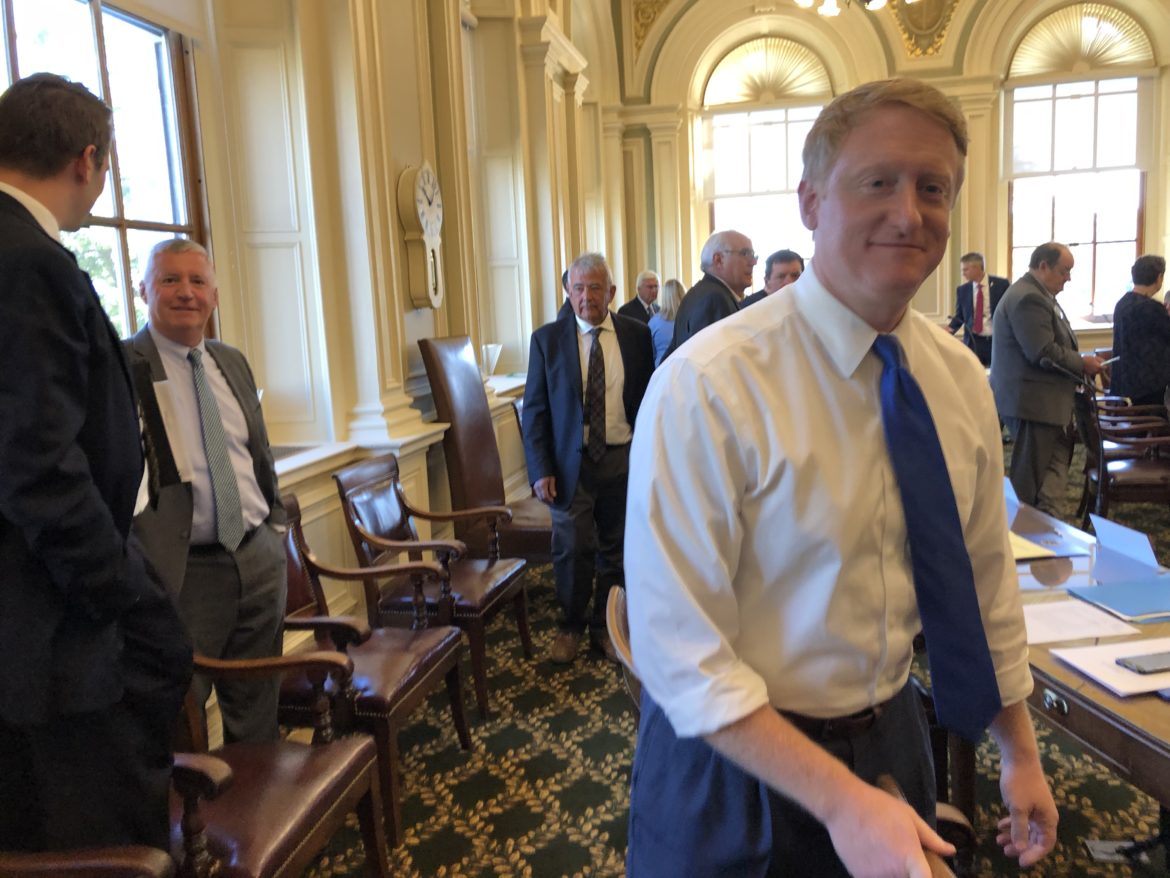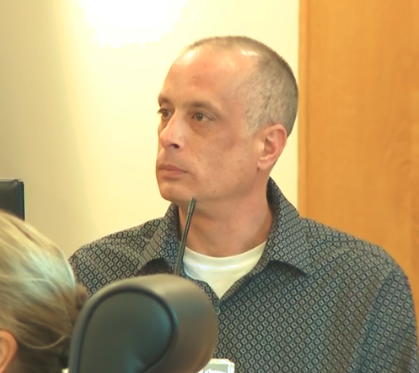By PAULA TRACY, InDepthNH.org
CONCORD – With only 45 days left before all $1.25 billion in CARES Act funding to New Hampshire must be spent by Gov. Chris Sununu or returned to Washington, D.C., the Legislative Advisory Board making recommendations canceled its scheduled meeting Tuesday.
State Sen. Lou D’Allesandro, D-Manchester, a member of the board, said the delay was caused because they are waiting for “factual data on what is left,” in the CARES Act fund.
Sununu was criticized Tuesday by state Senate Majority Leader Dan Feltes for not being transparent with CARES Act spending or with information on how he would handle a second wave of COVID-19 in long-term care facilities, which have seen the most deaths from the virus.
The Legislative Advisory Board was told, and Sununu has said about $38 million is unspent, but D’Allesandro said he believes more than that is not yet spoken for.
To get the exact number, the board will wait and meet Monday at 4 p.m., D’Allesandro said.
But late Tuesday afternoon, Alex Fries of the Governor’s Office For Recovery and Relief, said in an email to InDepthNH.org that all but about $1.49 million has been allocated.
“As of Friday, of the state’s $1.25B in CARES Act funds, all but approximately $1.49 million have been allocated…and GOFERR expects to expend a large part of the unspent allocated funds within the next two weeks.
“In part due to some larger payments being made in connection with the $100M in Main Street Relief Fund 2.0, the $12M in Live Venue Relief Fund, and the just-announced renewed Long Term Care stipend program, as well as other programs, which continue to expend funds on a weekly basis,” Fries said.
D’Allesandro said an accurate accounting of what is left in the CARES Act account should be known by Monday following several deadlines on appeals of programs created by Sununu to spend the money where it is needed most.
D’Allesandro said he expects additional allocations, and federal monies may be “redeployed” and go to hospitals, hospitality, and other aspects of the state hardest hit by COVID-19, which essentially shut the state down in March with a gradual reopening beginning in June.
Now, with a second wave causing a spike in cases and hospitalizations and no firm commitment from Washington on an additional stimulus, citizens of the state and businesses are waiting for help, D’Allesandro said.
He expects the Nov. 23 meeting will be the last for the Legislative Advisory Board as Dec. 3 is the end of the term for all elected members. While they were all returned by voters, their term would be over, D’Allesandro said.
Sununu has vowed that the money will be spent rather than returned.
Legislative majority leaders unsuccessfully sued Sununu over his sole control of CARES Act allocations.
CARES Act Transparency
Senate Majority Leader Feltes hand-delivered a letter to Sununu Tuesday that also included a right-to-know request to require him to respond to a past request to comply with House Bill 1129. It requires him to publish all allocations of CARES Act money on a state website.
Feltes claims Sununu has not done that.
Link to Governor’s Office for Recovery and Relief website: https://www.goferr.nh.gov/
Feltes also asked for all correspondence through RSA 91-A, the right-to-know law, requiring Sununu to provide information on what happened at the long-term care facilities where more than 81 percent of the state’s 500 COVID-19 fatalities occurred.
Feltes is also seeking Sununu’s plans for a second wave, which is now hitting the state.
Sununu did not immediately respond to questions from InDepthNH.org.
One place where there may be remaining funds is recent allocations from the CARES Act that provided grants to 24 live performance venues.
The state is still allowing appeals to be submitted through Nov. 20 and after, the Legislative Advisory Board will know what is left of the $12 million Sununu recently allocated.
Grants were issued Nov. 5 to the following:
https://www.goferr.nh.gov/sites/g/files/ehbemt366/files/inline-documents/sonh/live-venue-relief-program-awards.pdf with $1.5 million each going to three venues, New Hampshire Motor Speedway in Loudon, Bank of New Hampshire Pavilion in Gilford, and Fisher Cats Stadium in Manchester.
About $1 million went to Coastal Concerts, $733,000 to Southern New Hampshire University Arena in Manchester, and a tier of grants in the $600,000 range went to such live performance venues at the Palace Theater in Manchester, Tupelo Music Hall in Derry, Capitol Center for the Arts, New London Playhouse, Flying Monkey Theater in Plymouth, Hampton Beach Ballroom and then smaller grants went to a few including $35,000 to the Newport Opera House.
Nursing Home Relief
Sununu announced Monday plans to spend $30 million more in CARES Act relief for long-term care facilities. He also announced the resumption of stipends for some frontline workers at Medicare facilities who will receive $300 a week for full-time and $150 part-time in an effort to retain workers. This is in addition to almost $70 million paid out to those workers until the program ended this summer.
Hospitality Industry
Marti Mayne, public relations manager for the Mt. Washington Valley Chamber of Commerce, said the hospitality industry is hopeful Sununu is considering a second round of CARES Act money to support their businesses as the last days of the funding remain.
Mayne said that bookings have actually been up at hotels/lodging for the summer and fall – mostly because New Hampshire’s comparatively fewer restrictions have made travel here easier than any other New England state.
Vermont, for example, has had very restrictive travel guidance and it upped that effort last week.
“So many people have flocked to Mt. Washington Valley for outdoor recreation that it’s actually caused overcrowding issues throughout the summer and fall – especially at the more popular parks, trails, and scenic spots,” Mayne said.
“The restaurants and retailers have been more negatively impacted than lodging because of the requirement to take away seats to allow for social distancing. As people move inside, this will become a bigger problem as many travelers and residents alike don’t want to be inside so won’t go to restaurants,” she said.
Some other areas of the state have the reverse situation with lodging faring far worse than the restaurants.
The attractions industry is looking for federal help, which has not yet come. Members of the state’s Congressional delegation said they are working to get a package through in the lame-duck session but there is no deal yet.





